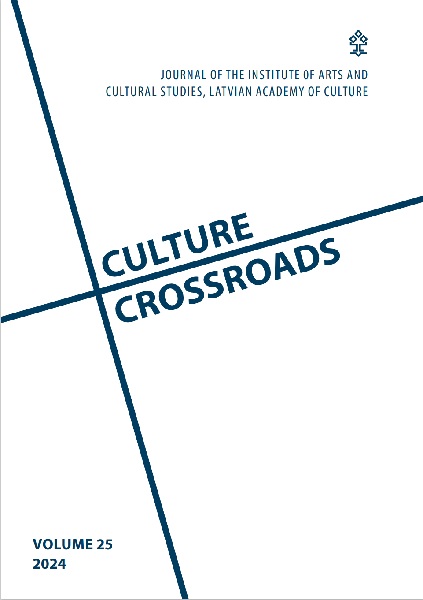BRITAIN’S STRIVING FOR GREATNESS:ITS REFLECTION IN LANGUAGE AND POLITICS
DOI:
https://doi.org/10.55877/cc.vol25.499Keywords:
British Empire, British exceptionalism, sustained metaphor, 2016 UK ReferendumAbstract
This paper is an interdisciplinary study of British political discourse. It attempts to examine how British greatness emerged and developed over the centuries. Changes in the official use of British terminology are highlighted as a reflection of dwindling historical greatness: the British Empire > The British Commonwealth (1931); The British Commonwealth > The Commonwealth (1949); Great Britain > Britain (UK for short). The idea of British greatness flourished during the Brexit period (2016–2020). Special attention is paid to stylistic changes in Brexit discourses, reflecting political events and developments. My analysis discloses the role of frequent creative use of phraseological units, e. g., a leap in the dark, to eat one’s cake and have it, to kick the can down the road etc. It offers insight into sustained creative use of metaphor as a reflection of painful and tortuous processes. I rely on findings of cognitive linguistics on thought and language [Gibbs 1999: 16–23].
This paper aims to explore the notion of British greatness, its origin and development over centuries, and the role it has played in Brexit-related events and processes. The study focuses on the interplay of history, politics and language, illustrating how figurative expressions are ingrained in a nation’s cultural fabric and linguistic landscape.
Downloads
References
Arnheim, R. (1969). Visual Thinking. Berkeley CA: University of California.
Bloomberg (2016). Brexit – A Messy Divorce or a Disastrous Marriage? Bloomberg video, 03-03-2016. Available: https://www.bloomberg.com/news/videos/2016-03-03/-brexit-a-messy-divorce-or-a-disastrous-marriage
Bonnet, A.-P. (2020). “The ‘Churchill Factor’ and Its Influence on the Brexit Debate: Defining the Churchill Myth”. Observatoire de la société britannique 25, pp. 65–86.
Charteris-Black, J. (2014). Analysing Political Speeches: Rhetoric, Discourse and Metaphor. Basingstoke, UK: Palgrave Macmillan.
Churchill, Winston S. (1930). “The United States of Europe”, Saturday Evening Post 15 (2). In: The Collected Essays of Sir Winston Churchill, ed. by Michael Wolff. 1976. Library of Imperial History, Vol. 2, p. 184.
Gibbs, Raymond W. Jr. (1994). The Poetics of Mind. Figurative Thought, Language and Understanding. Cambridge: Cambridge University Press.
Gibbs, Raymond W. Jr. (2008). Metaphor and Thought: The State of the Art. In: The Cambridge Handbook of Metaphor and Thought,edited by Raymond W. Gibbs, Jr. Cambridge: Cambridge University Press, pp. 3–13.
Gibbs, Raymond W. Jr. (2017). Metaphor Wars: Conceptual Metaphors in Human Life. Cambridge: Cambridge University Press.
Harrington, J. (2017). “Prime Minister May’s Vision for a Global Britain Post-Brexit”. Global Britain: Business Strategy for Brexit, 19.01.2017. Available: https://www.global-britain.com/theresa-mays-vision-global-britain-post-brexit/
Lakoff, G., and Johnson, M. (1980). Metaphors We Live By. Chicago/London: University of Chicago Press.
Lakoff, G., and Turner, M. (1989). More than Cool Reason: A Field Guide to Poetic Metaphor. Chicago/London: University of Chicago Press.
Lister, T. (2016). Brexit: An Often Rocky Marriage Ends in Sudden Divorce. CNN, 25.06.2016. Available:http://edition.cnn.com/2016/06/25/europe/uk-european-union-divorce/
Monbiot, G. (2021). That Creaking Sound? It’s the United Kingdom Starting to Break Apart. Opinion. Politics, 05.05.2021. Available: https://www.theguardian.com/commentisfree/2021/may/05/united-kingdom-westminster-independence-union-democracy
Naciscione, A. (2010). Stylistic Use of Phraseological Units in Discourse. Amsterdam/Philadelphia: John Benjamins Publishing Company.
Naciscione, A. (2016). Extended Metaphor in the Web of Discourse. In: Mixing Metaphor, edited by Raymond W. Gibbs. Amsterdam/Philadelphia: John Benjamins, pp. 241–266.
Naciscione, A. (2020). Multimodal Creativity in Figurative Use. In: Performing Creativity across Modes and Contexts, edited by Laura Hidalgo-Downing and Blanca Kraljevic Mujic. Amsterdam/Philadelphia: John Benjamins Publishing Company, pp. 249–279.
Price, R. (2006). One Big Thing. Britain, Its Empire and Their Imperial Culture. Journal of British Studies, No 45 (3), pp. 602–627.
Reuters (2019). Brexit will make UK ‘the greatest place on earth’, PM Johnson says, 26.07.2019.
Thatcher, M. (1950). 1950 General Election Address. Available: https://www.margaretthatcher.org/document/100858
Tilford, S. (2017). “The British and Their Exceptionalism”, Centre for European Reform. Insight, 03.05.2017. Available:https://www.cer.eu/insights/british-and-their-exceptionalism
Tusk, D. (2016). Speech by President Donald Tusk at the European Policy Centre conference, 13.10.2016. Available:https://www.consilium.europa.eu/en/press/press-releases/2016/10/13/tusk-speech-epc/
White, M. (2016). No, Boris, you can’t have your Brexit cake and eat it too. The Guardian, 22.02.2016. Available: https://www.theguardian.com/politics/2016/feb/22/no-boris-johnson-you-cant-have-your-brexit-cake-and-eat-it-too
Wismayer, H. (2017). Great Britain was Never Truly Post-colonial – and Brexit Proves It. Quartz 14-3-2017. Available: https://qz.com/931520/make-great-britain-great-again-how-brexit-reawakened-englands-dormant-imperialism/
Downloads
Published
Issue
Section
License
Copyright (c) 2024 Culture Crossroads

This work is licensed under a Creative Commons Attribution 4.0 International License.


